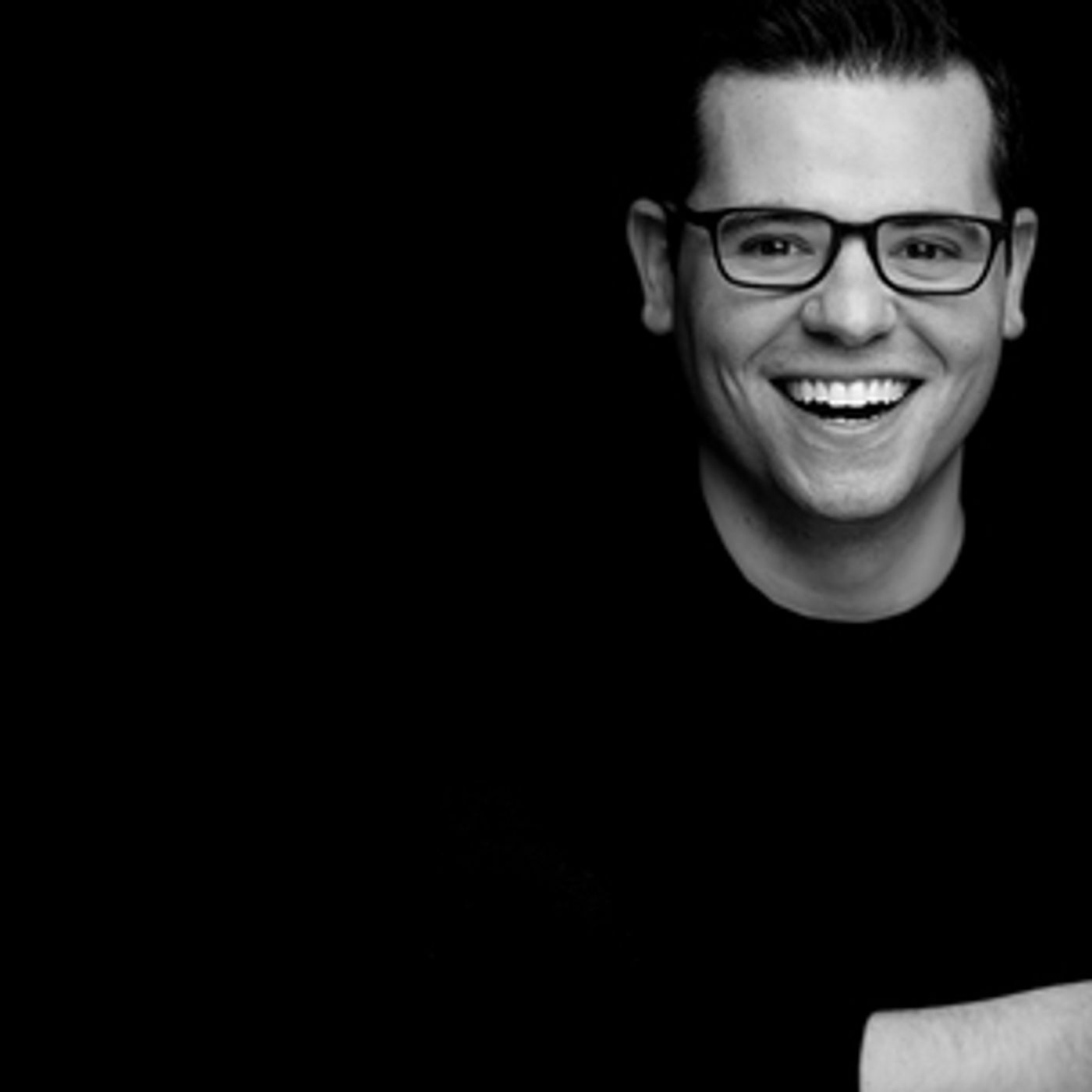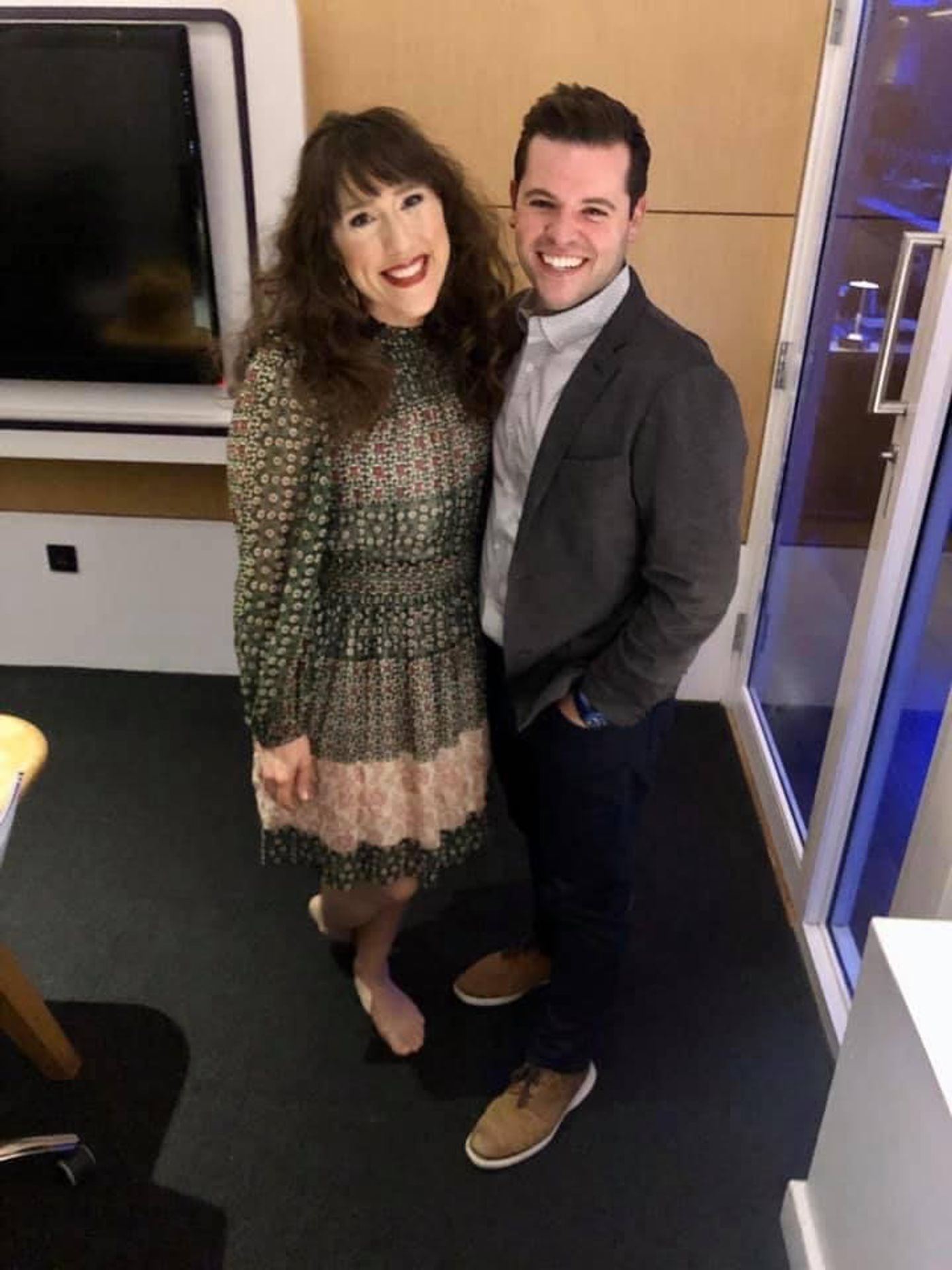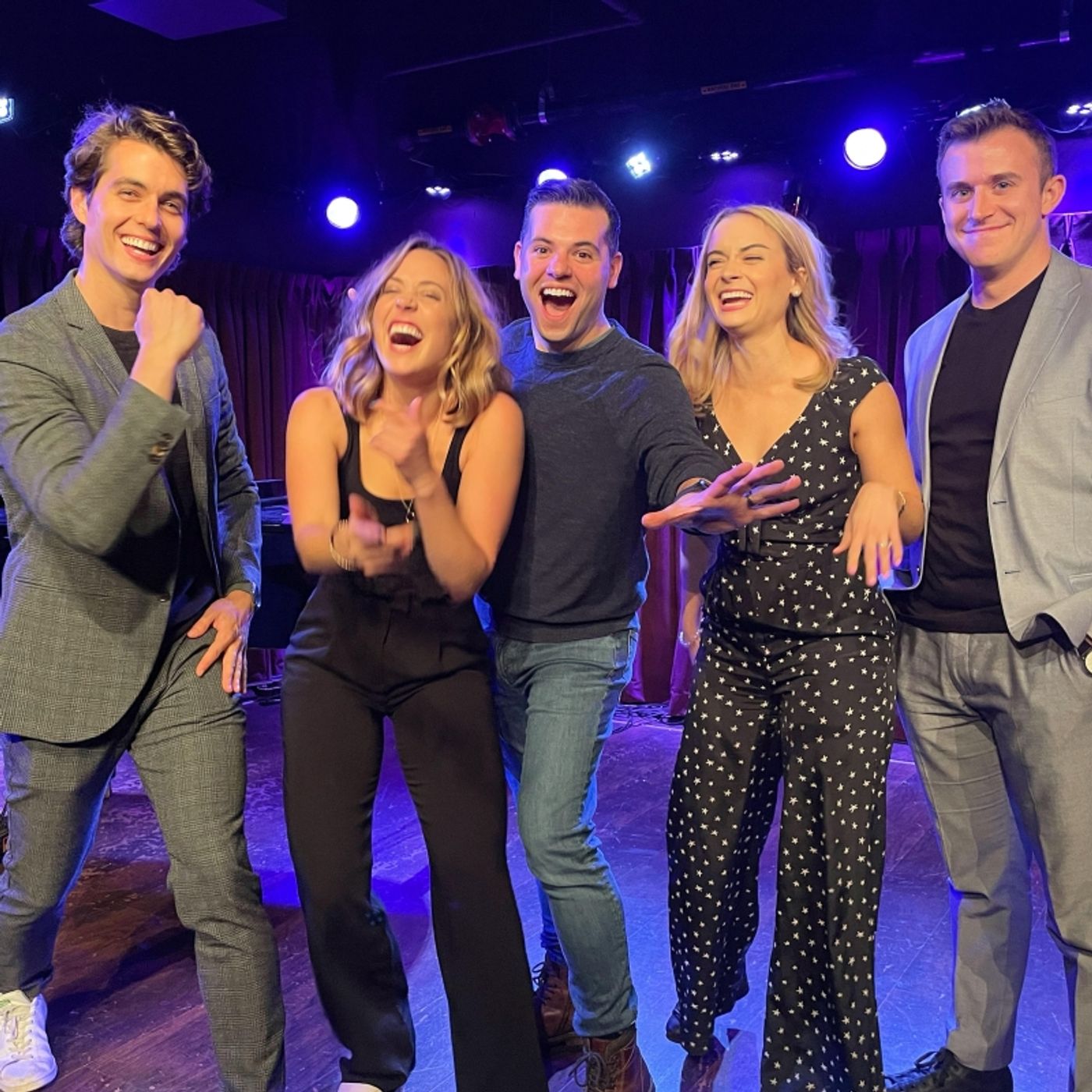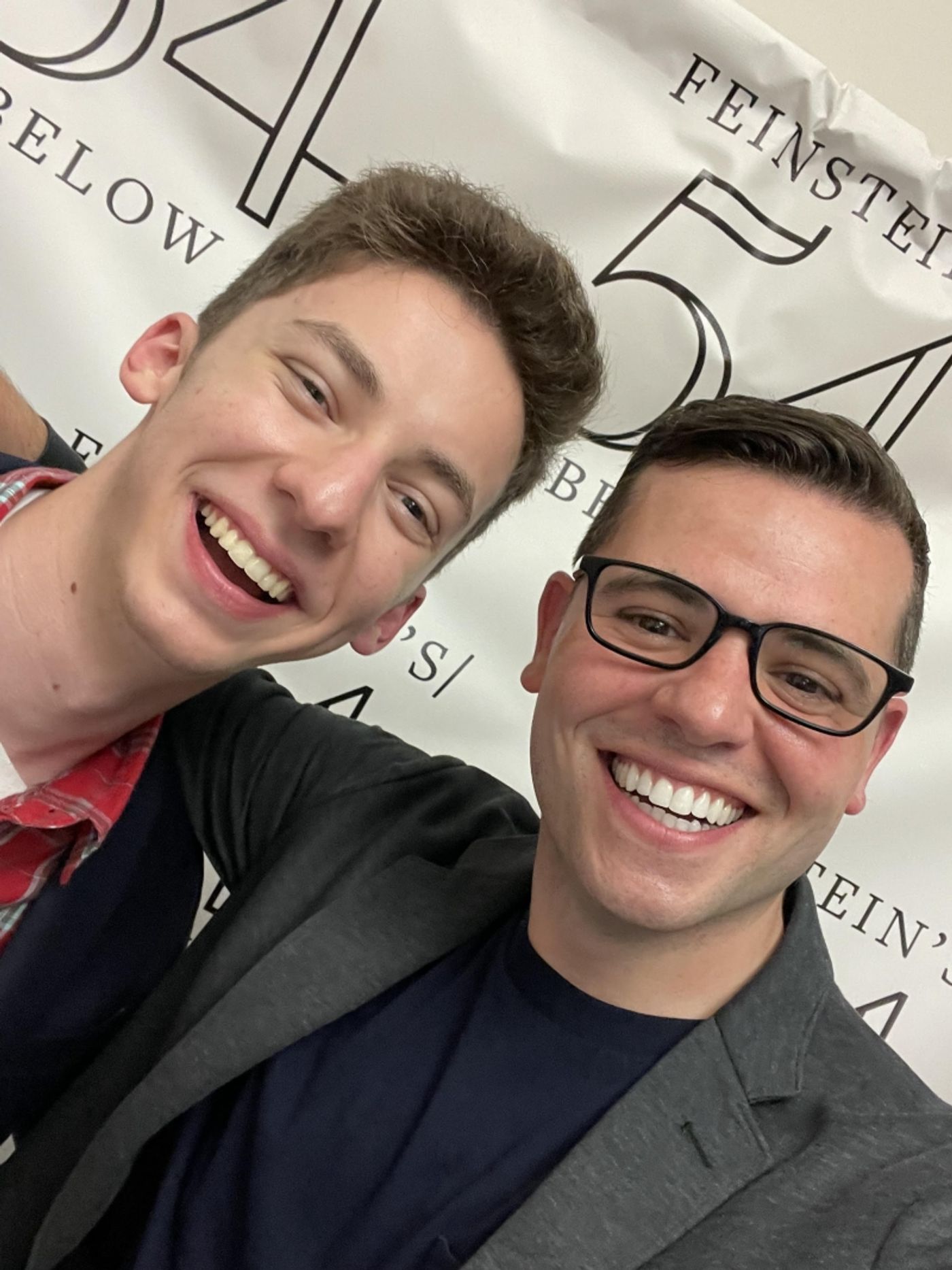Interview: THERE ARE NO ONE-PERSON SHOWS: Cabaret Director, Marc Tumminelli
Director Marc Tumminelli Talks about Cabaret, Andrew Barth Feldman, Farah Alvin, Erika Henningsen and More.

So what does a cabaret director do? Today in my ongoing series, THERE ARE NO ONE-PERSON SHOWS, we will find out from one of the busiest cabaret directors in New York, Marc Tumminelli. Marc is the founder of Broadway Workshop, which provides year-round, professional-level classes and workshops for kids 8-19 with some of the finest artists working on Broadway and in the West End. He is also the founder of Project Broadway, a non-profit that provides scholarship opportunities to young performers. His many students have appeared in Dear Evan Hansen, The Cher Show, Harry Potter, School of Rock, She Loves Me, Fun Home, The King and I, Miss Saigon, Matilda, Newsies, Chaplin, Kinky Boots, Waiting for Godot, The Mystery of Edwin Drood, People in the Picture, Fish in the Dark, Evita, Shrek, Mary Poppins, The Color Purple, How the Grinch Stole Christmas, Les Miserables, Sunday in the Park With George, West Side Story, Ragtime, Bye Bye Birdie and Finian's Rainbow, as well as many films and television shows.
In addition to being a very busy theatrical director, Marc has directed some of the most innovative cabaret artists out there including Erika Henningsen and Farah Alvin. He directed Andrew Barth Feldman's very successful 54 Below show, Park Map. Even though you won't see him on stage, Marc Tumminelli is one of the busiest men in cabaret. I was very glad when he agreed to sit down with me to talk about the role of a cabaret director. Here are some of the highlights.
Welcome to Broadway World.
Nice to be here.
Before we start talking about what a director does, I want to talk a little about you. I want to know, first of all, where you came from and how you ended up here.
Well, I came from Denise Nelson, my mom, and I grew up in Bayside Queens, and then we moved to Long Island. So I've been a New York city kid essentially for most of my life. I came in to see every show. I didn't really come from a theatre family, but they recognized that that was what I was into. We saw lots of theatre and I did lots of theatre as a kid. I was always in a show or working on a show like every, every theater kid is. I sort of became a student of the industry in so many ways. In between, acting jobs, I ushered on Broadway, I sold tickets at Broadway.com. I did lots of things that are industry adjacent. I was a producing assistant on an Off-Broadway show and so I kind of really learned the business. And then in 2007, when I started Broadway Workshop, I decided that I would stop acting myself and focus on this youth theater training program that I wanted to create. That took almost 15 years to get to where it is. So I can now be focusing on doing some other things. Luckily over the past couple of years, I've had some opportunities to work on a Disney movie as an acting coach and wound up coaching a lot of actors that are friends of mine. Then I parlayed that into directing. And now the main focus of my current life is directing both theater and cabaret acts. I have so many friends in the business from Broadway Workshop that teach for me and know me that have come to ask "Could you help me guide my cabaret show?" I have matched up with some really talented people.
Tell me about Broadway Workshop. What exactly do you do and who is it that you serve?
Broadway Workshop is a year-round theater program geared towards kids with a professional level interest in the performing arts. We have programming from eight years old, through 18 or 19. And we do classes, workshops, camps, summer intensives, and full productions. And that's how we really stepped out of the crowd. Every spring we do a full-scale, professional-level regional theater production featuring some of the most talented high school students in the tri-state area. We audition about 500 teenagers to cast around 20 to 25 young people. They are always the best of the best. And out of that program, we've had people like Andrew Barth, Feldman, Micaela Diamond, Presley, Ryan, students who've gone on to very big, exciting careers. And a lot of them had their start at Broadway Workshop doing our main stage program. We do things full out. We don't do children's theater. We've done Cabaret and Carrie, Xanadu and Pippin and The Secret Garden and things like that. We've had a really great couple of years through COVID because everyone was available to teach and everybody in the world is available to do Broadway workshops. So we were doing three or four classes a day with people like Adrienne Warren and Megan Hilty and Sierra Boggess and Rob McClure because these people were home and teaching. I've had the amazing fortune to teach classes sitting next to these people on Zoom. Having Lea Salonga teach a class from Manila on Zoom is a wacky situation.
That's exciting.
I have never been star-struck on Zoom but let me tell you, when Lea Salonga's face pops up, I'm sweating a little. Those are my teen year heroes. They're the people I get most star-struck about. I couldn't be in the room with Judy Kuhn. I'd want to vomit the entire time. What Meryl Streep is to other people, that's Judy Kuhn to me. ,
I did an interview with Penny Fuller. It was the same thing. I grew up listening to Applause. So talk to me about being a cabaret director. From your point of view, what is the job of a cabaret director?
I think the job of a cabaret director is to have a great understanding of the artist you're working with, what they're excited about, the stories that they want to tell, and to figure out how to cultivate that in a way that is for an audience and not self-serving. I think that is a really hard line to walk. I approach everything as an audience member. if I was sitting there and I did not know who you were, what am I going to take away from this show? What level of preparation are we putting into this? What are the music and the stories that make the best possible evening? I consider Christine Ebersole as good as it gets. She is singing songs that are not necessarily in a theme, (which sometimes I don't love.) It's about the music and the stories that she wants to tell. And maybe one really beautiful, heartfelt moment of something you didn't think about or know about, coupled with the song that you wouldn't expect that person to sing. You can create a moment that gives you a little bit of heart, a couple of moments, that give you a lot of laughter, and a couple of joyous numbers that are going to lift the audience up. And so you are figuring what that looks like in 13 songs, which I think is like the prime number.
Interesting. I've noticed in reviewing things, that's the typical number that everyone seems to have
Yeah, 13 is right. 14 if you're SO good. But you walk away and say "Wow, that was a great show." I know how hard and exhausting it is after a full day of work to sit down and watch someone do something that's very self-indulgent for an hour and 10 minutes. How do we get it to not be that? How do we get it to feel like you saw a piece of theater? And so that is my focus when I'm creating these shows. I work really hard and an insane amount of time goes into all of the shows that I direct because they are writing and rewriting. It's the most collaborative thing I've ever done because it's not like "Here's the script." It is the blankest canvas ever. And my job is to make that canvas incredibly interesting for anyone that sits down to watch this, not just your friends.
Well, this may be a silly question after that fabulous explanation. But there are cabaret shows that have a director and there are cabaret shows that do not have a director. What do you think is the case for hiring a director to help put your show together?
I don't know how anyone does it without a director. There are two versions of directing. One is like, where are you standing? What do you do? And the other one is how is this is coming off? It's better just to have someone else's eye on it, or to have someone to say "I think that intro is too long" or "There's nothing going on here. What happens if we underscore these two things together? And then this whole section becomes a moment and it's not just two songs and a story in between." It's just to have another set of eyes to look not only at what you're doing but how your show is flowing. It's someone to be honest with you and say "Listen, I know you love that song. I just think it's stopping our action dead in its tracks" or "I think it just doesn't fit with the night, or it's not as big of a vocal showcase as you think after 10 other songs." What I like to do is write a real show. And if the show strays you have a base to go back to. But if you have a really solid well-written piece that is your framework, then the fun gets to happen. Farah Alvin is the first person I really collaborated with to write a cabaret act. Farah is a genius at this. She's so smart in the moment she can edit and say "This will be a funnier joke." But if that framework didn't exist, she wouldn't be able to do that. It's also emotionally exhausting to get up there and do a solo show. I think shows that don't have a good director, you can tell.
I do too. I've never said it in a review, but I've thought it,
A lot of musical directors try to also direct, but those are different jobs.
Talk to me about that. How do you interact with the musical director?
Well, we are the team. So often I'll say "What do you think about this? How do you think this is working?" It's another great voice to have in the room. It's just one more person to collaborate on this show. When you go see a Broadway show, there are 99 people doing that job. It's not one person who makes every decision. It's all about people collaborating to come up with the best idea. This may be a little off topic but I directed a show at the 92nd Street Y with Stephen Schwartz, Ciara Reneeé, and Michael McCrary that Frank DiLella hosted. It was an hour and a half of Stephen telling stories and these people singing some songs from his incredible canon of music. And Stephen told a story about how he and Bob Fosse fought a lot during Pippin. But he thinks that's why the show is so successful because it was about meeting halfway with each other's ideas. It was not all Stephen and it was not all Bob. They met in the middle. So I think there's a little bit of that with all the music directors that I work with.
In a theatrical production, there's a very clear-cut hierarchy. The director is the final word on everything. It seems less so in cabaret. What do you think?
I think the person on stage is the most in charge. And so I take all my cues from that person. Sometimes they just want the okay from me. And other times they like having someone to defer to. I'm not going on stage and nobody's going to sit in the audience and say "That was terrible direction." My vision is the least important one. The two people on stage matter the most. I just want to help them succeed. If the audience knows I'm involved, that's great. And if they don't, that's also great. Andrew Barth Feldman's show this year was a wild success at 54 Below. It's truly one of the best cabaret acts I've ever seen, including Christine Ebersole. But that's because Andrew is an evil genius and he comes up with things. He just needs an editor. But when the night was over, it wasn't like, wow, Marc Tumminelli is so smart. No, Andrew is so smart. Whoever's on stage is the boss.
Now, describe to me the difference, for instance, working with Farah Alvin. Does your style change depending on the performer that you're working with?

Yeah, I think so. Farah is definitely somebody who knows what she wants and doesn't want. So it's a lot of sounding board stuff. I'll have an idea and she'll be like "Let's give that a whirl." Or "I love this song but can we please do this one instead?" Andrew is different because he was my student since he was seven or eight years old. And so he'll say "I have an idea." And I'll be like "No, you're absolutely not doing that." And he'll be like "Okay, you're the boss." We have a different kind of relationship and he might need that a little bit more as a younger person. Farah's had seven Broadway shows and a very long career, and she knows what works for her and what doesn't. Andrew is coming up with an idea in a second. So it's just shaping those ideas. He doesn't really ever have a bad idea. I work differently with everybody.
This is a question that I ask everyone in this series. I believe that cabaret is the most malleable of art forms. It means something different to everybody who participates in it. How would you define cabaret?
I guess I would define it as an artistically and vocally exciting evening, getting to know someone, that you don't know.
And tell me how that's done? Tell me how that's different than directing a theatrical production?
I'll use Carrie as an example. Carrie is a musical about a girl named Carrie, but it's not the actress's story. It's a different kind of story. Also, you can lift out of the cabaret. It's not like everything has to fit into this theme exactly. In Farah's first show that we did together, On Vinyl, she told this great story about working on The Look of Love. The story doesn't really match the song. She sang "Anyone Who Had a Heart," but before that, she told this wild story of being in The Look of Love and she read the New York Times review. It's so funny. But the song doesn't have to be also comedic because the story is comedic. Whereas in a musical, you couldn't have a scene that was hilarious and then sing "She Used to Be Mine." Do you know what I mean?
So as a director of cabaret, where do you see the future of cabaret? Where are things heading?
Oh, Lord. I'm nervous about cabaret fatigue. There are so many venues, which is amazing. But it's impossible to fill these venues two shows a night. Where is this audience? It's so much work to promote. I mean it winds up being on the artist to be a marketing director and a publicist. Luckily there are some people like you in the world who are shining a bright light on cabaret, but you're not getting an article written about your show, no matter how brilliant it is. I think being a cabaret star is a really impossible thing. You kind of have to be a big Broadway star and have a cabaret act. Farah's show is a really easy sell because it's all seventies music When I talk to promoters, they're so excited about that because you don't need to be a Broadway fan. You don't need to know who Farah is. You need to be a fan of the music of the seventies. And so many people are. With Erika Henningsen, she has a fan base that's Mean Girls based. So her cabaret can't be all Sondheim, because there's going to be a lot of teenage girls there with their parents. And so our job is to not give them just songs that they want but to give them like three songs that they want. So you can sing "Driver's License" but you're also going to sing, "Everybody Says Don't." But I do think it's a really hard art form financially. These venues have to book so many people to make money, but I don't know where the audience is for that.

I heard the most wonderful thing yesterday. I think it was Karen Oberlin who had this amazing quote. She said that cabaret was one of the most expensive hobbies in the world. And she said it was more expensive than meth but less expensive than golf.
If you're an artist and you do a killer show once a year, your friends will turn up. The room will fill. Then the theatre owner's very excited and they'll say " Let's do a show next month." It's not going to happen again.
Well, not unless you're Marilyn Maye.
And then you're sold out every night.
So to end our interview, do you have any dream projects? Are there artists that you are dying to work with? This is the place to put it in print and get it into the universe.
Judy Kuhn, call me! I will direct your show. I love the women of my youth. So Liz Callaway, Christine Ebersole, Judy Kuhn, Linda Eder. These are the people I live for. I'd love to take what I know about them and spin that into a new show or something that they're excited to collaborate on. Adrienne Warren can feel free to call me. I'm working with Micaela Diamond on a new show, which I think is going to be really special.
Oh, are there dates?
There's not a date in New York yet. Andrew's going to come back with his show, Park Map, which is about the Disney parks and is genius. We're making an album of Farah's show On Vinyl and I'm producing that album along with Michael Holland, who's a cabaret genius and an incredible composer and musical director. So there are lots of fun things happening. But yes, feel free if you're looking for someone to direct your show.
Judy Kuhn, you heard it here. Marc, thank you for talking to me. This has been delightful.
Thank you.
To learn more about Broadway Workshop, check out broadwayworkshop.com. To find out more about Marc Tumminelli, follow him @marctumminelli on Instagram or @ThatTumminelli on Twitter.
Videos


